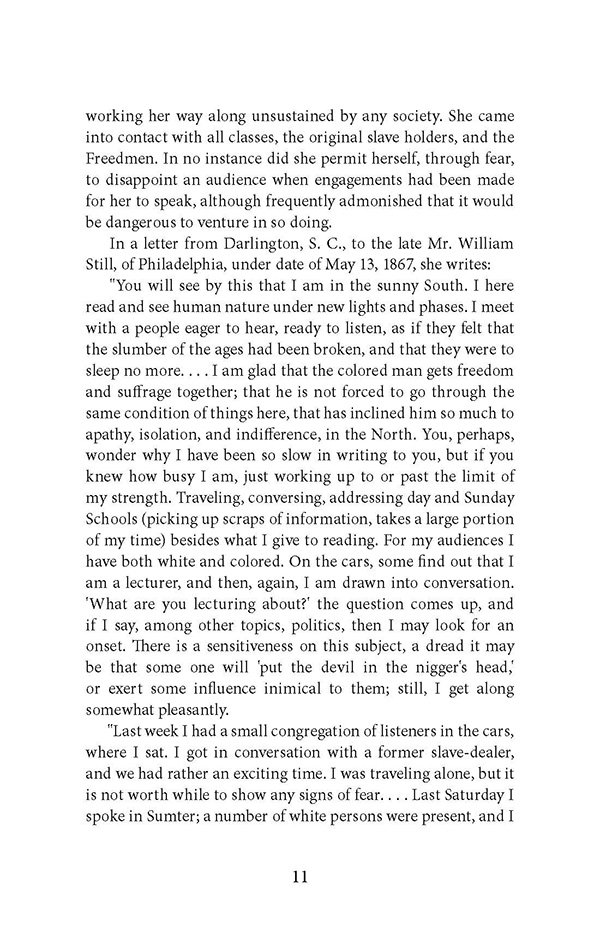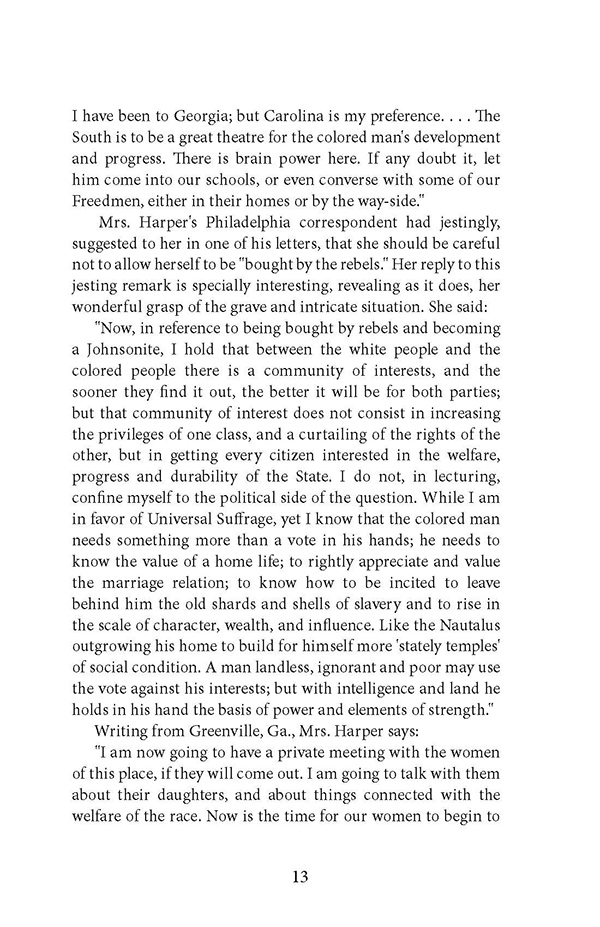

Watkins's fame as a writer and speaker grew, with publication in abolitionist papers such as William Lloyd Garrison's Liberatorand Douglass' Monthly.

She took direct political action, staging a sit-in to protest Philadelphia's segregated streetcars in 1858 and solicited aid for John Brown after his failed raid on Harpers Ferry (1859).

By 1854 she began traveling in the North and Canada as a one of the first women anti-slavery orators. In 1853 she moved to Philadelphia, where she was active in the Underground Railroad while continuing to write poetry. Frances Watkins instead moved to Ohio, where she was briefly the first female instructor at Columbus, Ohio's Union Seminary (later Wilberforce University). Because even freed slaves were in danger by living in a slave state, William Watkins had to close his school and move to Canada, as did many other freed blacks. The Compromise of 1850, which included the Fugitive Slave Act, brought disruption to the Watkins family. Her first extant volume of poetry is Poems on Miscellaneous Subjects (1854), which contained protests against slavery as well as some of her earliest poems in black dialect. She showed promise as a writer from her early years, and she is said to have published a volume of poems, Forest Leaves, by 1845, although no copy now exists. Her mother died when she was three, and Frances was raised by her aunt and educated in her uncle's school in Baltimore. LIFE AND CAREERįrances Ellen Watkins was born in Maryland in 1825, the daughter of a woman who was a freed slave her father was most likely white, although records of her early life are quite sketchy. Her reworking and rebuttal of the "tragic mulatto" theme in African American literature was a conscious political move for her own time but also has important ramifications for the history of the African American novel. Iola Leroy focuses on black identity, a concept central to this historical period and to African American literature. Harper's best-known novel provides a black perspective on a half century of American nineteenth-century history and projects an optimism for the future that, sadly, was not borne out by subsequent events in the 1890s and the first part of the twentieth century. Iola Leroy, among the first novels by an African American woman, chronicles black experience during slavery, the Civil War, and Reconstruction.

Harper's 1892 novel, Iola Leroy or, Shadows Uplifted, was in many ways the culmination of a remarkable career by an African American woman who was a poet, a novelist, and a noted speaker in the abolitionist, suffrage, and temperance movements.


 0 kommentar(er)
0 kommentar(er)
